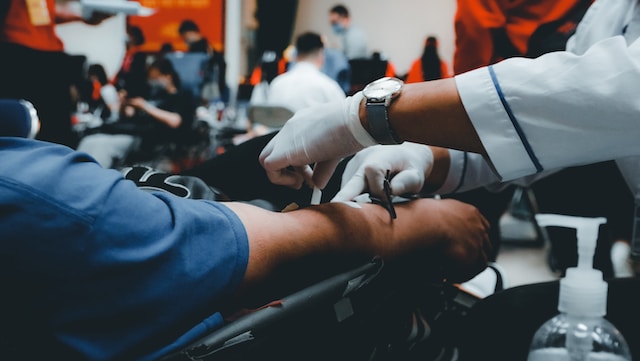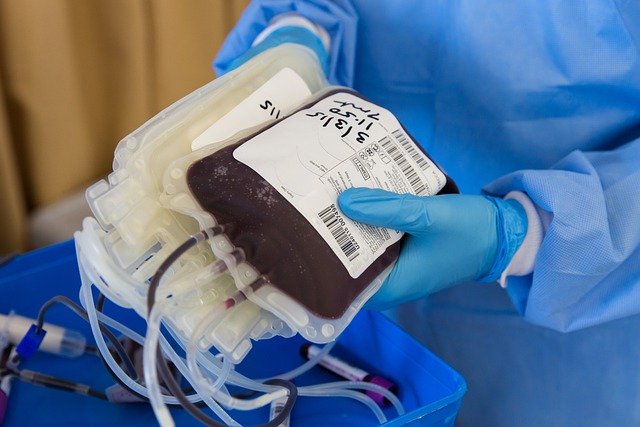
Why Donate Blood?
Giving blood is a selfless act, driven by personal conviction rather than a specific cause. Some respond to a friend’s request, while others anticipate the potential need of a loved one. There are those who view it as an unequivocally right and just deed, a moral obligation to help those in need. These diverse motivations all share a common thread: the profound impact of human empathy through a single act of generosity.
Your Donation Journey
Learn about each step of the Blood Donation Journey
- You arrive for your blood donation appointment
- Health history and mini-physical are completed
- For a whole blood donation, about 1 pint of blood is collected; several small test tubes of blood are also collected for testing
- Your donation, test tubes, and your donor record are labeled with an identical bar code label
- Your donation is kept on ice before being taken to a Blood Bank for processing; the test tubes go to the lab
- At the Blood Bank, information about your donation is scanned into a computer database
- Most whole blood donations are spun in centrifuges to separate it into transfusable components: red cells, platelets, and plasma
- Plasma may be processed into components such as cryoprecipitate, which helps control the risk of bleeding by helping blood to clot
- Red cells and platelets are leuko-reduced, which means your white cells are removed in order to reduce the possibility of the recipient having a reaction to the transfusion
- Each component is packaged as a “unit,” a standardized amount that doctors will use when transfusing a patient
- In parallel with Step 2, your test tubes arrive at a testing laboratory
- A dozen tests are performed, to establish the blood type and test for infectious diseases
- Test results are transferred electronically to the Blood Bank within 24 hours
- When test results are received, units suitable for transfusion are labeled and stored
- Red cells are stored in refrigerators at 6ºC for up to 42 days.
Platelets are stored at room temperature in agitators for up to five days - Plasma and cryo are frozen and stored in freezers for up to one year.
- Blood is available to be shipped to hospitals 24 hours a day, 7 days a week
- Hospitals typically keep some blood units on their shelves, but may call for more at any time, such as in case of large scale emergencies
- An ill or injured patient arrives at a hospital or treatment center
- Physicians determine whether the patient requires a transfusion and, if so, which type
- Blood transfusions are given to patients in a wide range of circumstances, including serious injuries (such as in a car crash) surgeries, child birth, anemia, blood disorders, cancer treatments, and many others
- A patient suffering from an iron deficiency or anemia may receive red blood cells to increase their hemoglobin and iron levels, improving the amount of oxygen in the body
- Patients who are unable to make enough platelets, due to illness or chemotherapy, may receive platelet transfusions to stay healthy.
Plasma transfusions are used for patients with liver failure, severe infections, and serious burns - Blood Transfusions are regularly required by Thalassemia Patients and your blood gives them HOPE for a longer life. Pune Red Cross has its own Thalassemia Center
What to expect at your donation?
Registration — You will sign in, show an ID, and be asked to read some required information.
Health History and Mini-Physical — Answer some questions online or in a private interview, and receive a general health check.
The Donation — You’ll be seated comfortably while a pint of blood is drawn. The actual donation only takes 8-10 minutes.
Refreshment and Recovery — After donating, you can enjoy a snack and a drink for 10-15 minutes before resuming your day. The entire donation process takes about an hour.
Testing — Your blood is tested and sent to a patient in need.
Guidelines for Blood Donation
- Be in good general health and feeling well
- Be at least 18 years old
- Have not donated blood in the last 56 days

